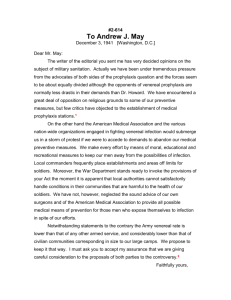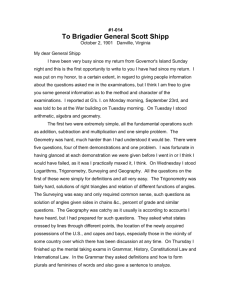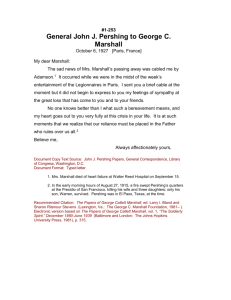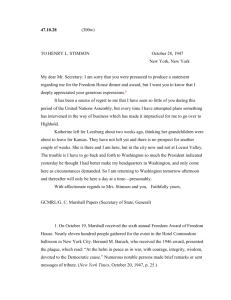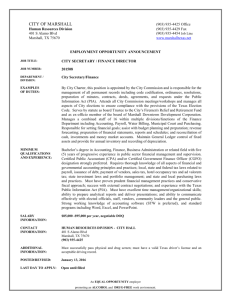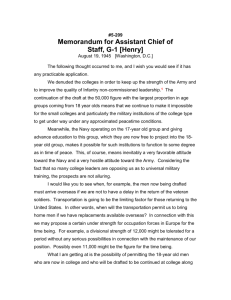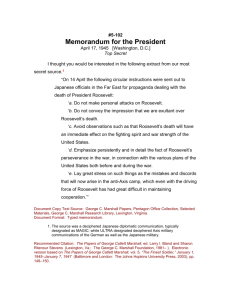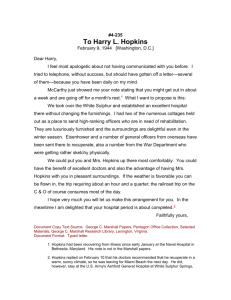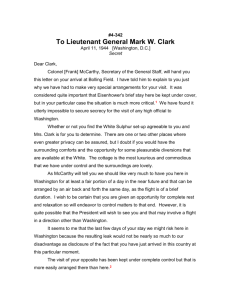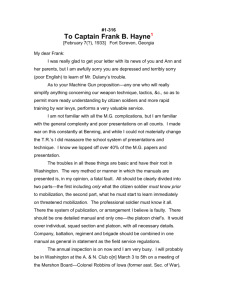2-533 - George C. Marshall Foundation
advertisement
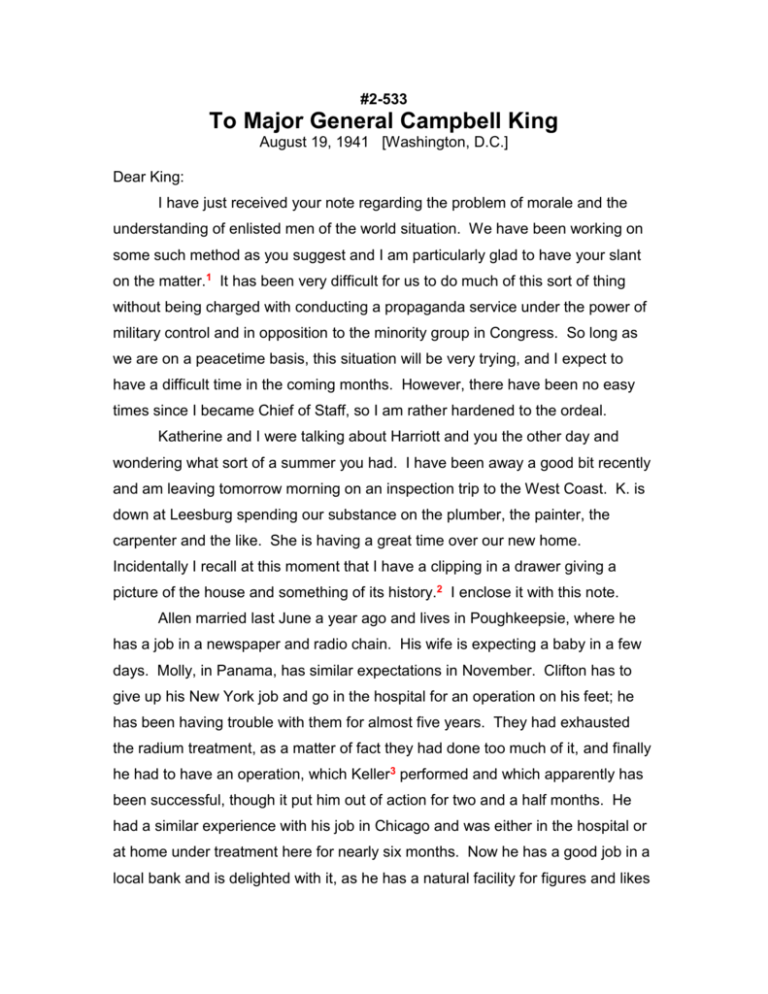
#2-533 To Major General Campbell King August 19, 1941 [Washington, D.C.] Dear King: I have just received your note regarding the problem of morale and the understanding of enlisted men of the world situation. We have been working on some such method as you suggest and I am particularly glad to have your slant on the matter.1 It has been very difficult for us to do much of this sort of thing without being charged with conducting a propaganda service under the power of military control and in opposition to the minority group in Congress. So long as we are on a peacetime basis, this situation will be very trying, and I expect to have a difficult time in the coming months. However, there have been no easy times since I became Chief of Staff, so I am rather hardened to the ordeal. Katherine and I were talking about Harriott and you the other day and wondering what sort of a summer you had. I have been away a good bit recently and am leaving tomorrow morning on an inspection trip to the West Coast. K. is down at Leesburg spending our substance on the plumber, the painter, the carpenter and the like. She is having a great time over our new home. Incidentally I recall at this moment that I have a clipping in a drawer giving a picture of the house and something of its history.2 I enclose it with this note. Allen married last June a year ago and lives in Poughkeepsie, where he has a job in a newspaper and radio chain. His wife is expecting a baby in a few days. Molly, in Panama, has similar expectations in November. Clifton has to give up his New York job and go in the hospital for an operation on his feet; he has been having trouble with them for almost five years. They had exhausted the radium treatment, as a matter of fact they had done too much of it, and finally he had to have an operation, which Keller3 performed and which apparently has been successful, though it put him out of action for two and a half months. He had a similar experience with his job in Chicago and was either in the hospital or at home under treatment here for nearly six months. Now he has a good job in a local bank and is delighted with it, as he has a natural facility for figures and likes the people with whom he is associated. He and I ride every morning at six o’clock. Katherine and I usually walk in the late evening or go swimming in the Post pool. I practically never go out at night, and try to get to bed at nine or ninethirty. I am sending you a copy of my Report, which stirred up such a hubbub, so that you can read the entire discussion, which few people have taken the trouble to do, though they had a hell of a lot to say about it. With my affectionate regards to you both, Faithfully yours, Document Copy Text Source: George C. Marshall Papers, Pentagon Office Collection, Selected Materials, George C. Marshall Research Library, Lexington, Virginia. Document Format: Typed letter. 1. King had written favorably of Secretary of War Stimson’s August 15 radio address to the army in which he explained why it was vital to the national defense to have the authority to extend the service times of selectees, National Guardsmen, and Reserve officers by eighteen months. (New York Times, August 16, 1941, pp. 1, 6.) King then proposed: “In view of the rumors of criticism by the enlisted men (not of the regular army) as to the necessity for this country to be prepared for emergencies, and the implication that they do not see the necessity for their being required to go thru a prolonged period of training, I suggest that it might be advisable to condense the facts set forth by Mr. Stimson in some simple form (preferably illustrated by a map) suitable to a soldier’s mentality and have it presented orally to each company or similar organization by suitable officers specially qualified to make an impression when speaking to soldiers.” (King to Marshall, August 16, 1941, GCMRL/G. C. Marshall Papers [Pentagon Office, Selected].) 2. For more information on Marshall’s Leesburg, Virginia, house, see Marshall to Pershing, April 15, 1941, Papers of George Catlett Marshall, #2-424 [2: 476–477]. 3. Colonel William L. Keller was a surgeon at Walter Reed General Hospital. See Papers of George Catlett Marshall, #1-250, [1: 310–312]. Recommended Citation: The Papers of George Catlett Marshall, ed. Larry I. Bland, Sharon Ritenour Stevens, and Clarence E. Wunderlin, Jr. (Lexington, Va.: The George C. Marshall Foundation, 1981– ). Electronic version based on The Papers of George Catlett Marshall, vol. 2, “We Cannot Delay,” July 1, 1939-December 6, 1941 (Baltimore and London: The Johns Hopkins University Press, 1986), pp. 592–593.
